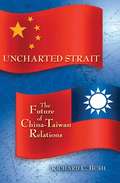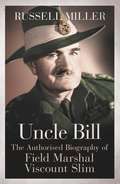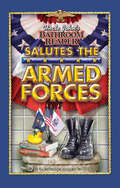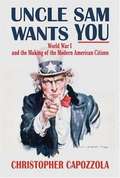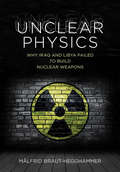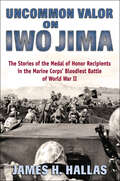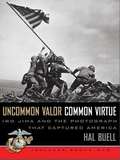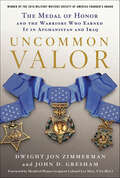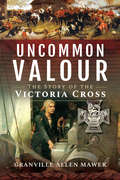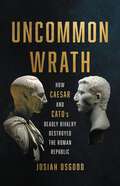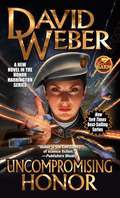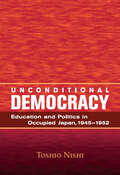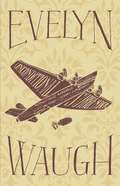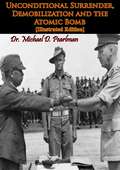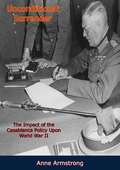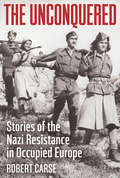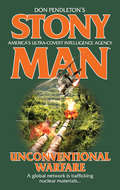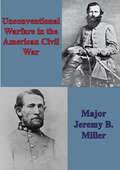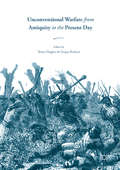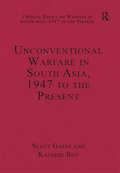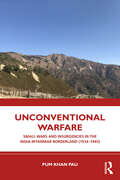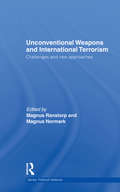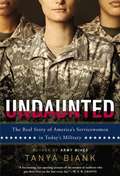- Table View
- List View
Uncharted Strait
by Richard C. BushThe future of the Taiwan Strait is more wide open than at any other time in recent decades. Tensions between China and Taiwan have eased since 2008. But the movement toward full rapprochement remains fragile. Whether the two sides of the Strait can sustain and expand a cooperative relationship after years of mutual distrust and fear is still uncertain.The waters of the Strait are uncharted, and each side worries about shoals beneath the surface. The current engagement between Beijing and Taipei may make possible a solution to their six-decade-long dispute. Whether, when, and how that might happen is, however, shrouded in doubt. China fears the island's permanent separation, by way of either an overt move to de jure independence or continued refusal to unify with the mainland. Taiwan fears subordination to an authoritarian regime that does not have Taipei's interests at heart. And the United States worries about the stability of the East Asian region.Richard Bush, who studied issues surrounding Taiwan during almost twenty years in the U.S. government, explains the current state of relations between China and Taiwan, providing the details of what led to the current situation. And he extrapolates on the likely future of cross-Strait relations. Bush also discusses America's stake, analyzing possible ramifications for U.S. interests in the critically important East Asia region and recommends steps to protect those interests."At the heart of the [Taiwan conundrum] is a question of definition. Does the dispute stem from the protracted division of the Chinese state after World War II, or does the Republic of China on Taiwan in some sense constitute a successor state of the old Republic of China (ROC), one on a par with the People's Republic of China on the Chinese mainland? Whether and how the unification of the two entities might occur hinges on the answer. Indeed, I have argued that the core of the dispute between the two sides has been their disagreement over whether the Republic of China-or Taiwan-is a sovereign entity for purposes of cross-Strait relations. It follows that if unification is a real option, the two sides must form a political union that bridges the disagreement over the island's legal status. Is that possible?"-from the Introduction
Uncle Bill: The Authorised Biography of Field Marshal Viscount Slim
by Russell MillerMasterly biography of the 'greatest commander of the 20th century'.Field Marshal Slim is less well known than other Second World War generals, but is now widely regarded as the best. To the men under his command he was 'Uncle Bill', probably the most respected and loved military leader since the Duke of Marlborough. Born into an impoverished family in Bristol in 1891 and brought up in the Black Country, he was commissioned as a temporary Second Lieutenant on the outbreak of the First World War. Twice seriously wounded, in Gallipoli and Mesopotamia, he was awarded the Military Cross in 1918. After the war he was unable to remain an officer in the class-ridden British Army without private means and transferred to the Indian Army, where he developed an enduring affection for the Ghurkhas and began writing short stories to supplement his income.Slim's career stalled between the wars, but during this time he developed the leadership techniques that would make him a national hero within a decade and which are still taught today at Sandhurst. Promotion came rapidly with the Second World War, and in March 1942 he was sent to Burma to take command of the British-Indian First Burma Corps, then in full flight from the advancing Japanese. Through the force of his leadership, Slim turned disorderly panic into a controlled military withdrawal across the border into India. Two years later, having raised and retrained the largest army ever assembled by Britain, Slim drove the enemy out of Burma and shattered the myth of Japanese invincibility which had hamstrung the Allied operations in the East for so long. Slim returned to Britain laden with awards and honours. He became a popular Governor-General of Australia in 1953, was raised to the peerage, and died in London in 1970.This important biography will be written with the full cooperation of the Slim family, and Russell Miller has had access to all their papers.
Uncle Bill: The Authorised Biography of Field Marshal Viscount Slim
by Russell MillerMasterly biography of the 'greatest commander of the 20th century'.Field Marshal Slim is less well known than other Second World War generals, but is now widely regarded as the best. To the men under his command he was 'Uncle Bill', probably the most respected and loved military leader since the Duke of Marlborough. Born into an impoverished family in Bristol in 1891 and brought up in the Black Country, he was commissioned as a temporary Second Lieutenant on the outbreak of the First World War. Twice seriously wounded, in Gallipoli and Mesopotamia, he was awarded the Military Cross in 1918. After the war he was unable to remain an officer in the class-ridden British Army without private means and transferred to the Indian Army, where he developed an enduring affection for the Ghurkhas and began writing short stories to supplement his income.Slim's career stalled between the wars, but during this time he developed the leadership techniques that would make him a national hero within a decade and which are still taught today at Sandhurst. Promotion came rapidly with the Second World War, and in March 1942 he was sent to Burma to take command of the British-Indian First Burma Corps, then in full flight from the advancing Japanese. Through the force of his leadership, Slim turned disorderly panic into a controlled military withdrawal across the border into India. Two years later, having raised and retrained the largest army ever assembled by Britain, Slim drove the enemy out of Burma and shattered the myth of Japanese invincibility which had hamstrung the Allied operations in the East for so long. Slim returned to Britain laden with awards and honours. He became a popular Governor-General of Australia in 1953, was raised to the peerage, and died in London in 1970.This important biography will be written with the full cooperation of the Slim family, and Russell Miller has had access to all their papers.
Uncle John's Bathroom Reader Salutes the Armed Forces (Uncle John's Bathroom Reader)
by Bathroom Readers' InstituteArmy, Air Force, or Marine—read all about them in the latrine! Army, Navy, Air Force, Marines, and the Coast Guard—the patriotic folks at the Bathroom Readers Institute have stormed the proverbial beaches of Normandy and beyond to bring you this salute to the greatest force for good on planet Earth! Make your way through the ranks and read about the history, triumphs, trials, trivia, and humor of those who serve. At nearly 500 pages, this is the book you want by your side while you wait it out in the foxhole. Read about . . . * The Semper Fi story * A history of the draft * The real Private Ryan * Dog tags then and now * Medal of Honor winners * M*A*S*H: the true story * The original Flying Tiger * Beetle Bailey and other cartoon soldiers * What it takes to be in the Special Forces * Can you see me now? The story of camouflage * and much, much more!
Uncle Sam Wants You: World War I and the Making of the Modern American Citizen
by Christopher CapozzolaUncle Sam Wants You tells the dramatic story of the mobilization of the American home front in World War I. In April 1917, the United States embarked on its first overseas war - with no history of conscription, an army smaller than Bulgaria's.
Unclear Physics: Why Iraq and Libya Failed to Build Nuclear Weapons (Cornell Studies in Security Affairs)
by Malfrid Braut-HegghammerMany authoritarian leaders want nuclear weapons, but few manage to acquire them. Autocrats seeking nuclear weapons fail in different ways and to varying degrees—Iraq almost managed it; Libya did not come close. In Unclear Physics, Malfrid Braut-Hegghammer compares the two failed nuclear weapons programs, showing that state capacity played a crucial role in the trajectory and outcomes of both projects. Braut-Hegghammer draws on a rich set of new primary sources, collected during years of research in archives, fieldwork across the Middle East, and interviews with scientists and decision makers from both states. She gained access to documents and individuals that no other researcher has been able to consult. Her book tells the story of the Iraqi and Libyan programs from their origins in the late 1950s and 1960s until their dismantling.This book reveals contemporary perspectives from scientists and regime officials on the opportunities and challenges facing each project. Many of the findings challenge the conventional wisdom about clandestine weapons programs in closed authoritarian states and their prospects of success or failure. Braut-Hegghammer suggests that scholars and analysts ought to pay closer attention to how state capacity affects nuclear weapons programs in other authoritarian regimes, both in terms of questioning the actual control these leaders have over their nuclear weapons programs and the capability of their scientists to solve complex technical challenges.
Uncommon Grit: A Photographic Journey Through Navy SEAL Training
by D. McBurnettRetired Navy SEAL and professional photographer Darren McBurnett takes readers behind the scenes into the elite SEAL training program, BUD/S, in Coronado, California. Striking, beautiful, and haunting, Uncommon Grit takes a unique, unprecedented look at the toughest training in the military -- and the world -- from the vantage point of someone who lived through it. Retired Navy SEAL Darren McBurnett includes vivid descriptions of both the physical and mental evolutions that occur as a result of the immensely challenging SEAL training process.His stunning photographs, partnered with his compelling insights and sharp sense of humor, allow the reader to laugh, cringe, gasp, and even envision themselves going through this extraordinary experience.
Uncommon Valor on Iwo Jima: The Stories of the Medal of Honor Recipients in the Marine Corps' Bloodiest Battle of World War II
by James H HallasThe epic Battle of Iwo Jima is recounted through the stories of twenty-eight American soldiers who showed uncommon valor during one of WWII&’s most bitter conflicts. When the smoke cleared on Iwo Jima in March of 1945, nineteen-thousand American Marines had been wounded and seven-thousand were dead, a casualty rate of nearly thirty-nine percent. Lasting over a month, Iwo was the Marines&’ bloodiest battle of the Second World War and the only Pacific battle in which a U.S. landing force suffered more casualties than it inflicted. It was also the most highly decorated single engagement in Marine Corps history. This volume captures the bravery of those who fought in that epic battle through the stories of twenty-two Marines and five Navy personnel who received the Medal of Honor in recognition of their gallantry under fire.
Uncommon Valor, Common Virtue
by Hal BuellA dramatic photo history of the battle of Iwo Jima and the iconic picture that captured America-DVD included! On February 23, 1945, as the battle for the Japanese island stronghold of Iwo Jima raged below, Associated Press photographer Joe Rosenthal's camera captured six troops raising the Stars and Stripes on Mt. Suribachi. That photograph would go on to symbolize the Marines' valor and America's determination to win World War II. This is the story of the ten days Rosenthal spent on Iwo Jima-and how his Pulitzer-winning picture came to be. Containing over 120 combat photographs- including shots of the flag-raising by other photographers-quotes from survivors, newspapers and magazines, battle reports and Medal of Honor citations, here is a grunt's eye view of the bloodiest battle in U.S. Marine Corps history. It also recounts "the photograph's" enduring legacy in popular culture, and reveals the fates of the flag raisers- men who became a fixture in their country's history.
Uncommon Valor: The Medal of Honor and the Warriors Who Earned It in Afghanistan and Iraq
by Dwight Jon Zimmerman John D. GreshamUncommon Valor from Dwight Jon Zimmerman and John D. Gresham presents a fascinating look at six of our bravest soldiers and the highest military decoration awarded in this country.Since the Vietnam War ended in 1973, the Medal of Honor, our nation's highest award for valor, has been presented to only eight men for their actions "above and beyond the call of duty." Six of the eight were young men who had fought in the current war in Iraq, Afghanistan, or both. All of these medals were awarded posthumously, as all had made the choice to give their lives so that their comrades might live. Uncommon Valor answers the searing question of who these six young soldiers were, and dramatically details how they found themselves in life-or-death situations, and why they responded as they did. For the first time, this book also provides a comprehensive history of the Medal of Honor itself—one marred by controversies, scandals, and theft. Using an extraordinary range of sources, including interviews with family members and friends, teammates and superiors in the military, personal letters, blogs posted within hours of events, personal and official videos and newly declassified documents, Uncommon Valor is a compelling and important work that recounts incredible acts of heroism and lays bare the ultimate sacrifice of our bravest soldiers.
Uncommon Valour: The Story of the Victoria Cross
by Granville Allen MawerWhat is the nature of courage, how and when should it be recognized, and how has our appreciation of it changed? These are among the questions Granville Allen Mawer seeks to answer in this absorbing study of the history of the Victoria Cross, the highest award in the British honors system for gallantry in the presence of the enemy. His is the first analytical account of the institution of the Victoria Cross, and it is a fascinating study of the ethics of rewarding bravery. It explores in dispassionate detail the thinking behind the creation of the award, the reasons why individual awards were given and how, over the last 160 years, the system has developed and changed. Using vivid and carefully selected examples, he compares individual actions that led to a Victoria Cross and considers the circumstances in which they took place and the reasons given for making the award. So many factors were involved – the character of the individual concerned, the severity of the danger he faced, the situation of the British forces, whether his conduct was seen and recorded, and the interpretation of the criteria for making an award at the time. This unconventional treatment of the Victoria Cross may be controversial, but it should stimulate a deeper understanding of the history of the medal and of the heroism of those to whom it has been awarded.
Uncommon Wrath: How Caesar and Cato's Deadly Rivalry Destroyed the Roman Republic
by Josiah OsgoodA dual biography of Julius Caesar and Cato the Younger that offers a dire warning: republics collapse when partisanship overrides the common good. In Uncommon Wrath, historian Josiah Osgood tells the story of how the political rivalry between Julius Caesar and Marcus Cato precipitated the end of the Roman Republic. As the champions of two dominant but distinct visions for Rome, Caesar and Cato each represented qualities that had made the Republic strong, but their ideological differences entrenched into enmity and mutual fear. The intensity of their collective factions became a tribal divide, hampering their ability to make good decisions and undermining democratic government. The men&’s toxic polarity meant that despite their shared devotion to the Republic, they pushed it into civil war. Deeply researched and compellingly told, Uncommon Wrath is a groundbreaking biography of two men whose hatred for each other destroyed the world they loved.
Uncompromising Honor (Honor Harrington #19)
by David WeberUncompromising Courage. Uncompromising Vengeance. Uncompromising Honor. The Solarian League—for hundreds of years they have borne the banner of human civilization. But the bureaucratic Mandarins who rule today’s League are corrupt and looking for scapegoats. They’ve decided the upstart Star Kingdom of Manticore must be annihilated. Honor Harrington has worn the Star Kingdom’s uniform for half a century. So far, hers has been a voice of caution. But now the Mandarins have committed atrocities such as the galaxy has not known in a thousand years. They have finally killed too many of the people Honor Harrington loves. Now Honor Harrington is coming for the Solarian League. And Hell is riding in her wake.
Unconditional Democracy: Education and Politics in Occupied Japan, 1945-1952 (Hoover Institution Press Publication #244)
by Toshio NishiThe difficult mission of a regime change: Toshio Nishi gives an account of how America converted the Japanese mindset from war to peace following World War II.
Unconditional Surrender
by Evelyn WaughBy 1941, after serving in North Africa and Crete, Guy Crouchback has lost his Halberdier idealism. A desk job in London gives him the chance of reconciliation with his former wife. Then, in Yugoslavia, as a liaison officer with the partisans, Crouch becomes finally and fully aware of the futility of a war he once saw in terms of honor. Unconditional Surrender is the third novel in Waugh's brilliant Sword of Honor trilogy recording the tumultuous wartime adventures of Guy Crouchback ("the finest work of fiction in English to emerge from World War II" -Atlantic Monthly), which also comprises Men at Arms and Officers and Gentlemen.
Unconditional Surrender, Demobilization and the Atomic Bomb [Illustrated Edition]
by Dr Michael D. PearlmanIncludes The Bombing Of Japan During World War II illustrations pack with 120 maps, plans, and photosThe calculations for bringing large-scale hostilities to an end and for establishing a favorable environment in which post-combat operations, including the occupation of the enemy's homeland, can take place involve high-level military officers in the analysis of a wide range of considerations, many of which fall well beyond what would be traditionally recognized as strictly military in nature.In Unconditional Surrender Demobilization, and the Atomic Bomb, Dr. Michael Pearlman brings home this point through his shrewd assessment of the complex issues confronting U.S. officers as they debated the best course of action to follow in ending the war against Japan. Aside from the list of traditional concerns, such as the human cost of mounting an invasion of Japan, these officers had also to consider such intangibles as continued support for the war effort on the American home front.Thanks to Pearlman's research, the reader comes away with a deeper understanding of why these officers made the recommendations they did to the president and why the president decided to drop the atomic bomb to end World War II.
Unconditional Surrender: The Impact of the Casablanca Policy Upon World War II
by Anne ArmstrongDid the concept of Unconditional Surrender announced by President Roosevelt at the conclusion of the Casablanca conference in 1943 actually prolong the Second World War?No question about Allied policy and conduct of the war has produced more debate, more expression of emotional and political bias—and less dispassionate judgment based upon the facts. This has been so partly because we have not had access to all the facts. In spite of the remarkable coverage of the war given us at the time by our newspapers and our radio reporters and subsequently by historians, we have lacked detailed, authoritative documentation of the impact of Unconditional Surrender upon the people who experienced it at first hand—the Axis powers, their governments and their citizens.Here is a comprehensive and penetrating examination of this controversial policy from its inception as an idea to its utilization as a major Allied propaganda weapon and its imposition upon our enemies as the penalty for aggression and war.In particular, here is the story of what it was like to be part of the other side of the war, to experience developments as members of the German military establishment. Drawing upon hitherto unpublished diaries and letters and upon interviews with leading German generals and members of the anti-Nazi resistance movement, Anne Armstrong presents a vivid picture of the effect of wartime demands for unconditional surrender on those elements in the enemy camp which Allied policy could and should have influenced most decisively—those German leaders with the ability and inclination to terminate the war.
Unconquered: Stories of Nazi Resistance in Occupied Europe
by Robert CarseThe Unconquered, first published in 1942, is a dramatic account of the underground struggle against the Nazis in occupied Europe in World War II. Author Robert Carse (1902-1971) describes resistance activities in a number of countries, including Norway, Holland, Belgium, France, Spain, Greece, Yugoslavia, Czechoslovakia, and Poland. Based on true incidents and characters, the events are presented in a semi-fictionalized manner, and well-convey the bravery and determination of the people of the occupied nations in their quest for freedom from Nazi tyranny.
Unconventional Warfare
by Don PendletonAn international crime ring rooted in China is distributing raw materials for weapons of mass destruction. Severely battered by counterstrikes, Stony Man suffers casualties in a battle to halt the sale of nuclear material, which is fast becoming a personal race against death.
Unconventional Warfare In The American Civil War
by Major Jeremy B. MillerConsidering the history of unconventional warfare in the United States, and specifically, during the Civil War, it begs the question: Did the Confederacy's strategy to engage in unconventional warfare significantly contribute to its conventional strategy? Two assertions remain most accepted by historians and military personnel. The first prevailing opinion is that the Confederacy's use of unconventional warfare was ineffective and negatively affected the overall campaign. The second opinion is that the South's unconventional efforts yielded unparalleled success and prolonged the war. To evaluate the impact of the Confederacy's unconventional campaign plan, the methodology of this study addresses several subordinate questions: Did the Confederacy adopt an unconventional war strategy as part of its overall strategy? How did conventional military leaders apply unconventional warfare? What effects did unconventional warfare have on conventional operations? Was unconventional warfare at the tactical level linked to operational and strategic level objectives?
Unconventional Warfare from Antiquity to the Present Day
by Brian Hughes Fergus RobsonThe contemporary issue of terrorism - not to mention the rebellions and insurrections ongoing around the globe - is one of the signature problems of the modern world. This proposed collection of essays will be the first to address these issues conceptually in a range of historical periods and places, from a variety of analytic perspectives. The advantage of this approach is that it affords an opportunity to gain a more complete understanding of the dynamics of such conflicts and to establish the current and historical parameters of these hybrid forms of war. While modern political discourse shifts easily between sets of valorising and delegitimising discourses in relation to non-conventional conflicts and combatants, using loaded terminology like 'terrorist' or 'freedom fighter', the individuals who are thus described all engage in unconventional warfare. This has often been characterised as small war, in distinction to 'big' war or conflicts between regular armies. This type of conflict, whether pitting paramilitary or guerrilla groups against each other or against conventional forces, is almost certainly the original form of warfare and it has throughout history continued to play a hugely important, if frequently underestimated or ignored, role in the conflicts which shaped the world.
Unconventional Warfare in South Asia, 1947 to the Present (Critical Essays on Warfare in South Asia, 1947 to the Present)
by Kaushik RoyUnconventional war is an umbrella term which includes insurgencies, counter-insurgencies, terrorism and religious conflicts. Insurgencies and communal conflicts have become much more common in this region since 1947, and more people have died in South Asia due to unconventional wars than conventional warfare. The essays in this volume are organized in two sections. While the first section deals with insurgencies, counter-insurgencies and terrorism; the second section covers the religious aspects of the various intra-state conflicts which mar the multi-ethnic societies of South Asia.
Unconventional Warfare: Small Wars and Insurgencies in the India-Myanmar Borderland (1914–1945)
by Pum Khan PauThe book probes the lesser-known history of the Great Wars in the India-Myanmar borderland from the perspective of the indigenous people of the area. It critically studies how the indigenous hill people saw the Wars as an opportunity to defend their land and free themselves from the bondage of colonial rule. The volume provides an in-depth analysis of the effectiveness of unconventional warfare during the First and Second World Wars, where conventional methods of fighting seemed to be irrelevant in the mountainous Indo-Burma frontier, and studies the role played by the indigenous hill people who had traditional expertise in jungle warfare.An important contribution to indigenous studies, this book will be an essential read for scholars and researchers of history, Northeast India, frontier studies, military history, insurgency and counterinsurgency, colonialism, tribal studies, and the history of modern Southeast Asia.
Unconventional Weapons and International Terrorism: Challenges and New Approaches (Political Violence)
by Magnus Ranstorp Magnus NormarkIn recent years, senior policy officials have highlighted increased signs of convergence between terrorism and unconventional (CBRN) weapons. Terrorism now involves technologies available to anyone, anywhere, anytime, deployed through innovative solutions. This indicates a new and more complex global security environment with increasing risks of terrorists trying to acquire and deploy a CBRN (Chemical Biological Radiological Nuclear) attack. This book addresses the critical importance of understanding innovation and decision-making between terrorist groups and unconventional weapons, and the difficulty in pinpointing what factors may drive violence escalation. It also underscores the necessity to understand the complex interaction between terrorist group dynamics and decision-making behaviour in relation to old and new technologies. Unconventional Weapons and International Terrorism seeks to identify a set of early warnings and critical indicators for possible future terrorist efforts to acquire and utilize unconventional CBRN weapons as a means to pursue their goals. It also discusses the challenge for intelligence analysis in handling threat convergence in the context of globalisation. The book will be of great interest to students of terrorism studies, counter-terrorism, nuclear proliferation, security studies and IR in general.
Undaunted: The Real Story of America's Servicewomen in Today's Military
by Mark Thompson Tanya BiankAs she did so provocatively with military spouses in Army Wives, Tanya Biank gives us the inside story of women in today's military--their professional and personal challenges from the combat zone to the home front... Since 9/11, more than 240,000 women have fought in Iraq and Afghanistan--more than 140 have died there, and they currently make up fourteen percent of the total active-duty forces. Despite advances, today's servicewomen are constantly pressed to prove themselves, to overcome challenges men never face, and to put the military mission ahead of all other aspects of their lives, particularly marriage and motherhood. In this groundbreaking, insider's look at the women defending our nation, Tanya Biank brings to light the real issues--of femininity, belonging to an old boys' club, veiled discrimination, dating, marriage problems, separation from children, questions about life goals, career trajectories, and self-worth--that servicewomen are facing by focusing on four individual stories. Brigadier General Angela Salinas, the Marine Corps' first Hispanic female general, faces the challenge of commanding an all-male institution. Second Lieutenant Bergan Flanagan finds herself on the frontlines in Afghanistan, serving in the same military police company as her husband. As a marine drill instructor, Sergeant Amy Stokley demands the very best from the recruits at Parris Island. And Major Candice O'Brien deals with deployment to Afghanistan, with two young children and a strained marriage back home. Undaunted is the story of these courageous trailblazers--their struggles, sacrifices, and triumphs in the name of serving the country they love.
